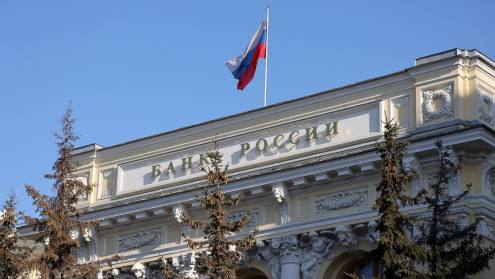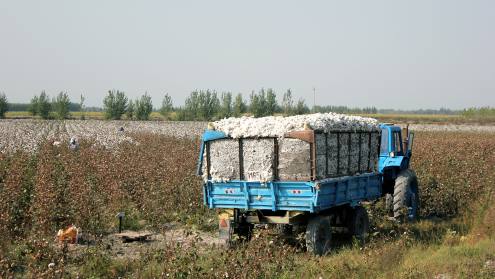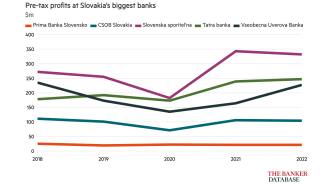Four months ago, Romania formally became a member of the EU. After a difficult few years preparing for accession, its successful entry was welcomed by tens of thousands of Romanians celebrating in the same square in Bucharest in which, in 1989, they witnessed the collapse of communist rule under Nicolae Ceausescu.
People have welcomed accession and there is a palpable feeling across the country that it will bring with it a better life within the EU. Already, streets across the capital are home to a growing number of striking new buildings as crumbling, communist-era structures are replaced.
But for many, hope is all they have because, despite all its hard work, Romania is still struggling with corruption, civil service incompetence and a lack of infrastructure, as any traveller can testify if they have attempted to drive from the capital into the Carpathian Mountains. Poverty is widespread and there are growing concerns that the government may be slipping in its commitment to reform, especially in its efforts to combat corruption and to reform the judiciary.
In the next seven years, Romania can expect to receive €30bn in aid from Brussels. Many Romanians are pessimistic and sceptical that much of that money will reach the poorest among the nation’s population of 22 million. Many believe that corrupt officials and businessmen will siphon off a large part of this funding – and that pessimism is not without foundation. In 2005, about 200 judges were accused of corruption along with more than 60 members of the police force.
However, despite widespread concerns in Europe that the Romanian government may begin to relax its efforts to complete necessary reforms, the Romanian president, Traian Basescu, has gone out of his way to reassure politicians, investors and businessmen alike that the programme to modernise and reform is secure.
Economic strength
Although little may have changed for the average Romanian citizen, the economy is performing strongly. Average growth in the past five years has been in excess of 5% and last year it almost topped 8%. This impressive economic performance is being driven by both strong external and internal demand, and foreign investment is beginning to arrive. In 2006, Romania attracted $8bn in foreign direct investment and a similar amount is expected this year.
Commenting on the figure for 2006, Anthony O’Sullivan, director of the programme Investment Compact for Southeast Europe at the Organisation for Economic Co-operation and Development, says: “Direct investments amounted to $4000 per capita in 2006. We can, however, make a comparison with the situation in Croatia, where the investments totalled $6000 per capita, and thus the situation can improve in Romania.”
The economy may be performing well but there remain a host of problems that pose a long-term threat to Romania’s future success. Entry into the EU has brought with it increased competition; the continued migration of talented labour is set to continue and will pose a real problem for the economy and key sectors such as IT software and financial services; the country’s infrastructure is poor; there is a sizeable ‘black’ economy; and, for overseas companies seeking to establish trading relationships with their Romanian counterparts, that too is not without its problems. There is a bureaucratic legacy as a result of communist rule and businesses will need to get sound professional legal, financial and taxation advice before entering the market.
Slower growth
According to the latest EU8+2 Regular Economic Report from the World Bank, real GDP growth strengthened significantly last year. Growth benefited from declining oil prices and remained strong despite the leu currency appreciating significantly against both the euro and the dollar. The report predicted that growth was likely to ease this year as growth slows in the euro area.
However, the report’s author, World Bank lead economist Thomas Blatt Laursen, warned that there a growing tendency towards higher inflation, driven by strong wage and credit growth which, combined, were leading to overheating and inflationary pressures. The country is now faced with a balance of payments deficit that is set to exceed 10% of GDP in 2007.
Despite these problems, Mr Laursen urged the Romanian government to accelerate the pace of structural reforms, encourage saving, and improve monitoring and regulation in the banking sector.
Although the Romanian banking market remains significantly less developed than those of other EU member states, it is being transformed. There has been significant growth in both retail and corporate lending, and most assessments of the banking market suggest there is considerable growth potential in corporate banking, consumer credit, savings deposits, bank cards and asset management offering.
Strengths in banking
The banking market has a number of strengths in that it is stable, privately owned (89.1% in terms of total capital), and the active involvement of foreign banks in the domestic market has raised the overall level of expertise in the sector in terms of technological expertise, product support and knowledge transfer, as well as providing capital and funding support.
However, accession will mean that the sector will face increased competition and increased costs, especially as banks introduce new products and services. On the retail side, that will include credit cards, e-banking and mobile banking. Most banks are investing heavily in their physical networks and the number of automated teller machines and point-of-sale networks has soared.
In the loans market, there has been increased demand for consumer loans, mortgages and leasing products. Across all financial services, from insurance to mutual funds and pensions, the opportunities for domestic and foreign banks are exploding.
This market potential was the key driver behind Austria’s Erste Bank’s decision to acquire Banca Comerciala Romana (BCR) at the end of 2006. Erste, one of central Europe’s leading financial services providers, argues that with a relatively low level of banking penetration, there will be substantial long-term growth potential as the Romanian market converges with the more developed parts of Europe.
Speaking last year, Erste Bank CEO Andreas Treichl said: “People incredibly underestimate the growth potential in countries such as Romania. The day when Romanians pull ahead of countries like Austria, in terms of GDP per capita, will come.”
Erste is not alone. Seven banks recently announced plans to enter Romania. Citibank International, JPMorgan International Bank, JPMorgan Europe, Royal Bank of Scotland, Lombard Odier Darier Hentsch Private Bank and Credit Suisse Luxembourg have confirmed their intention to begin operations, according to Romania’s central bank. They join 33 other foreign banks operating in the market.
With all this activity, Romania is certainly undergoing significant change. Erste Bank’s acquisition of BCR puts it well ahead of its peers in terms of market share.
According to Manfred Wimmer, chief of strategy at Erste Bank: “BCR is a bank with a unique position because it is the leader in all segments. When I say that BCR will prove a good deal, it is connected to ‘the future of Romania’, which has the highest growth rate in the region.”
The risk factor
However, as numerous commentators have said, growth represents a tremendous opportunity but also brings with it a greater risk of losing market share should mistakes be made. And although Erste may have gained BCR’s 25% share of the market, it has also inherited an organisation needing significant restructuring and substantial investment. Mr Treichl has talked of investing €290m in the bank over the next three years.
“Our investment will deliver more than 10% return by increasing new profits by more than 40% annually over the next three years,” says Mr Treichl. “I want to expand BCR’s loan book by 30%-35% annually.”
Erste is planning to open 125 new bank units, including 30 in Bucharest and 54 in towns with more than 250,000 inhabitants, over the coming 12 months. It will also focus on real estate activity and plans to set up a mobile team in Bucharest.
Property prices have more than doubled in the past three years, and a boom fuelled by domestic demand, increased tourism and foreign investors has brought growing demand for mortgages and property loans. Values have risen at an average annual rate of 8%-10%, and in some parts of Bucharest increases have been much higher. Rates of return on investments are among the highest in Europe.
Good prospects
In the medium term, prospects for Romania across all aspects of the banking sector would appear to be very good. Individuals’ wealth is increasing, there is low unemployment and record foreign direct investment: all contributing to increased demand for banking services.
The World Bank report stated that overall the efficiency, profitability and capitalisation of banks in Romania was in line with banks in the eurozone and that the current credit expansion “reflects a natural process of financial deepening, and credit-to-GDP ratios are mostly in line with levels of per capita income”.
But there was a warning. Excessive growth in terms of credit, fuelled by Romanians’ increasing appetite for more sophisticated banking services and its concentration in the household sector for consumption and housing, could be laying the foundations for an asset price bubble.
The Romanian banking authorities seem sanguine at the prospect, but may have to act should rapid credit growth in turn lead to mounting economic risks. But, whatever happens and whatever challenges face them, banks that have entered or are planning to enter the Romanian market are entering a market set for a prolonged period of expansion.











